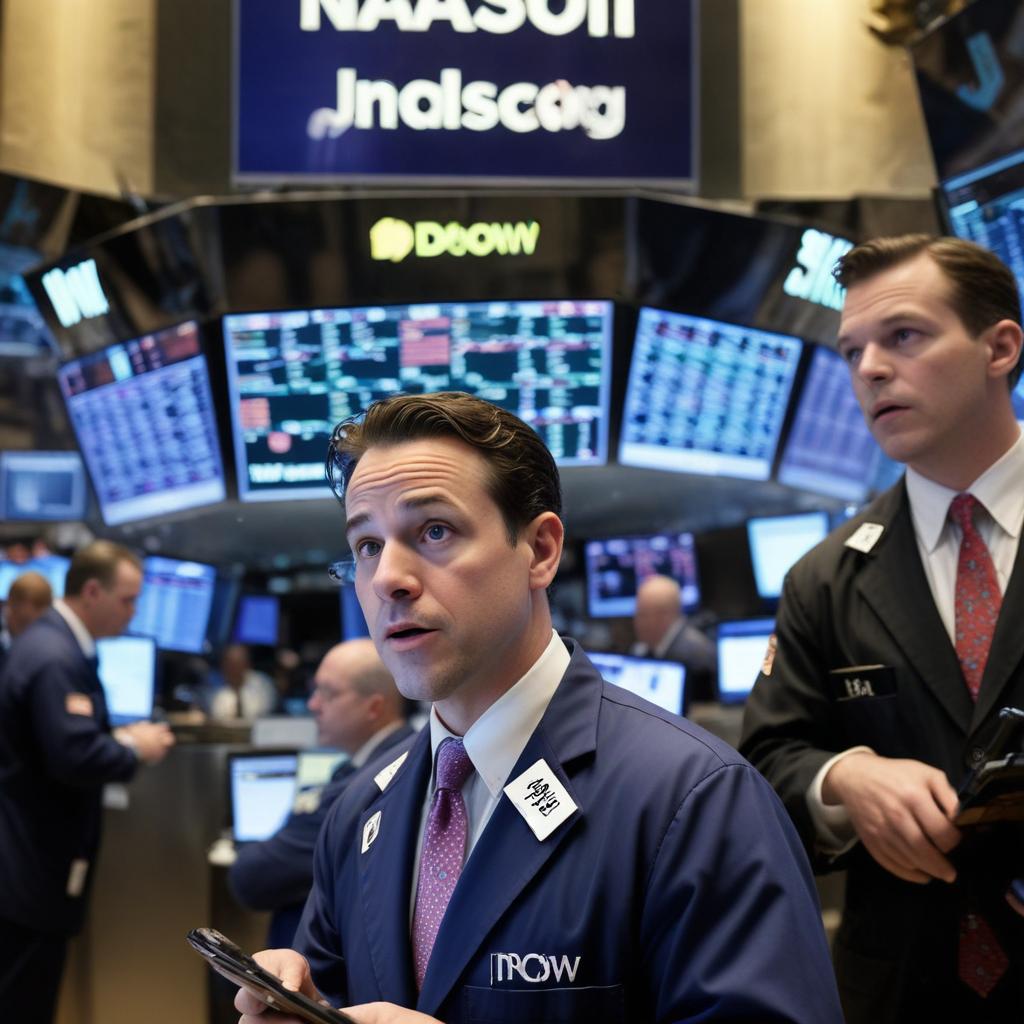Stocks wavered Wednesday amid an escalating trade war, mixed corporate earnings, and Fed uncertainty. While major banks posted strong profits, some tech and pharma companies struggled. AI investments showed positive momentum, but broader market concerns, including U.S.-China tensions and delayed economic data, drove investors to safe havens like gold, which surged.
On Wednesday, Wall Street experienced unsteady trading, with major U.S. stock indexes showing volatility. The S&P 500 dipped 0.1%, the Dow Jones Industrial Average fell 0.2%, while the Nasdaq composite managed a slight 0.1% gain. This market fluctuation was influenced by several key factors: an escalating trade conflict between the U.S. and China, a diverse range of corporate profit reports, and ongoing uncertainty regarding the Federal Reserve's monetary policy. Technology stocks were particularly affected by the losses, with Nvidia falling 1%, highlighting the sector's vulnerability to trade disputes. However, certain tech companies like ASML (up 3.1%), Broadcom (up 1.6%), and Advanced Micro Devices (up 6.1%) demonstrated resilience, boosted by sustained positive momentum in artificial intelligence investments, despite concerns about a potential market bubble. The banking sector provided a significant uplift, as Bank of America climbed 3.6% and Morgan Stanley surged 4.9%, both reporting stronger-than-expected quarterly profits. These positive results followed similar encouraging reports from JPMorgan Chase and Wells Fargo the previous day. Conversely, PNC Financial fell 2.9% due to a disappointing earnings forecast, and Abbott Laboratories sank 4.9% after its revenue fell short of analysts' expectations. Companies are under considerable pressure to deliver robust profits to justify a substantial 35% surge in their stock prices since April. The U.S. government shutdown is further complicating the economic landscape by delaying crucial economic data, making it more challenging for the Federal Reserve to determine whether high inflation or a slowing job market poses the greater economic threat. The Fed recently cut interest rates for the first time this year and hinted at further potential cuts, though such actions could exacerbate inflation, which remains stubbornly above its 2% target. Geopolitical tensions, specifically President Trump's criticism of China's restrictions on rare earth exports, also contributed to market unease. Amidst this backdrop of uncertainty, gold emerged as a significant beneficiary, rising 1% to surpass $4,200 per ounce and climbing nearly 60% for the year, as investors sought a safe haven against trade wars, potential military conflicts, and inflation concerns stemming from mounting global debt. International markets presented a mixed picture, with strong gains in South Korea (Kospi up 2.7%) and France (CAC 40 up 2%).



